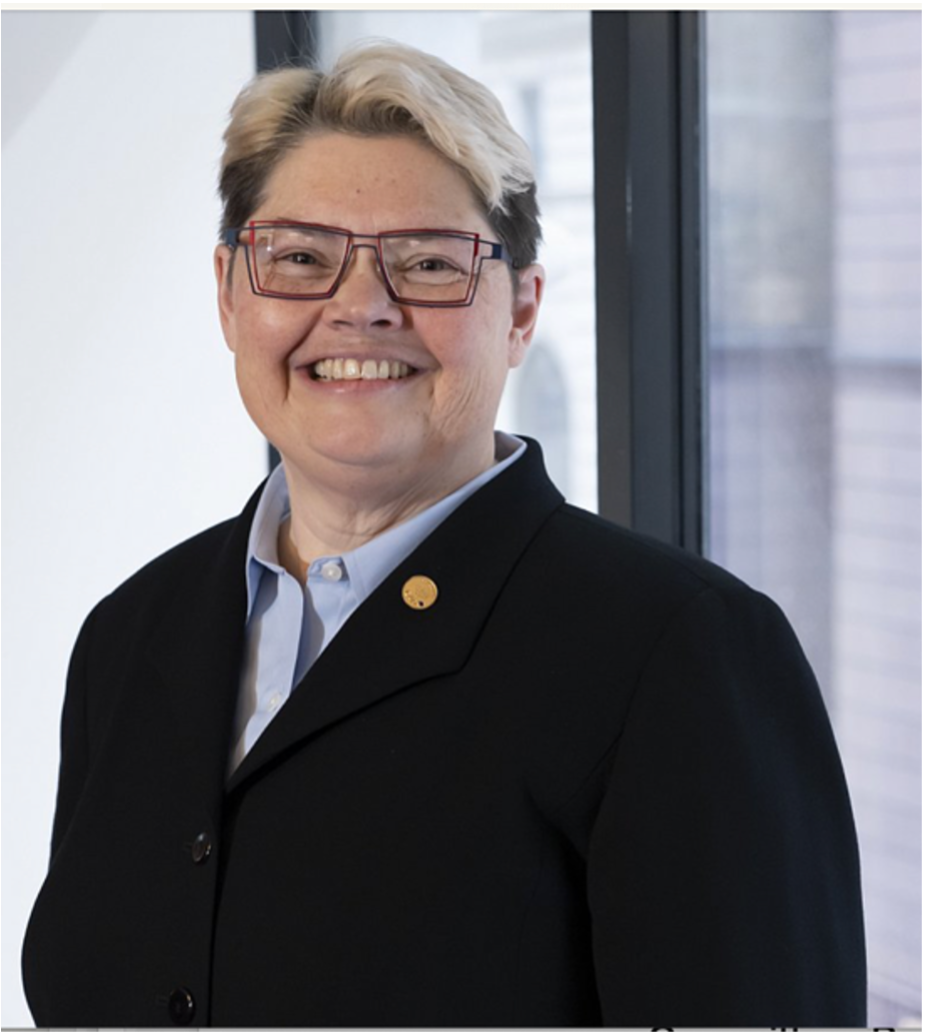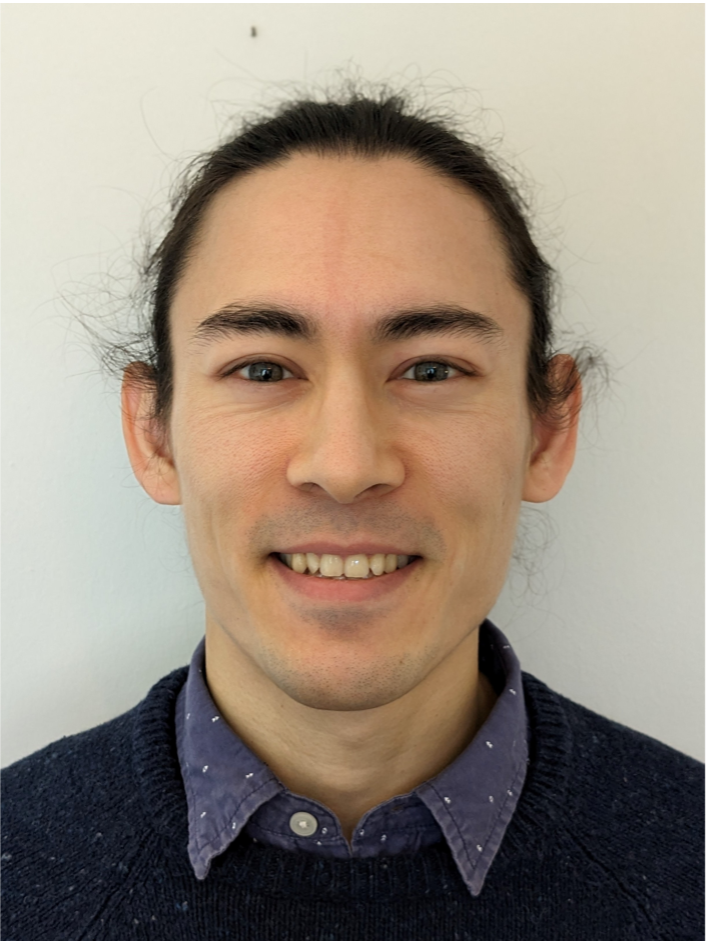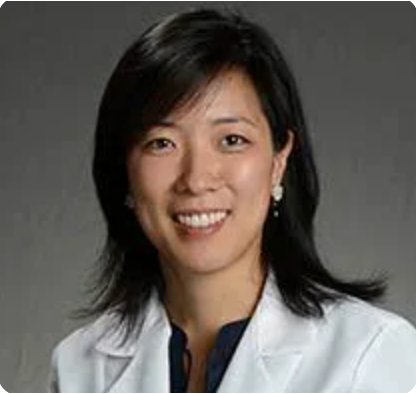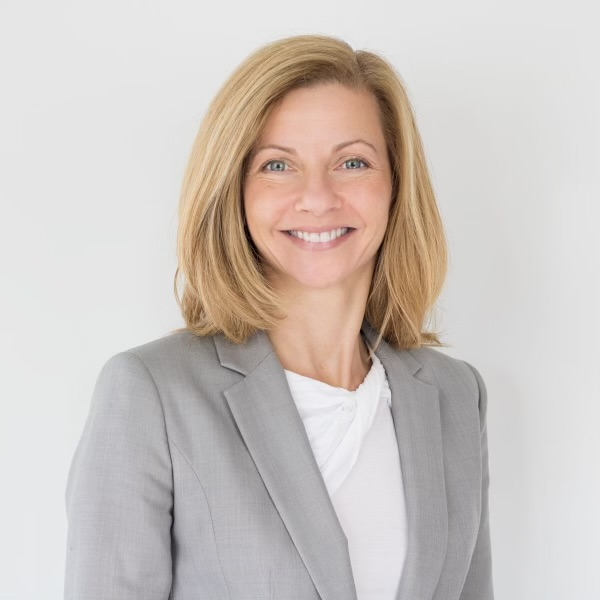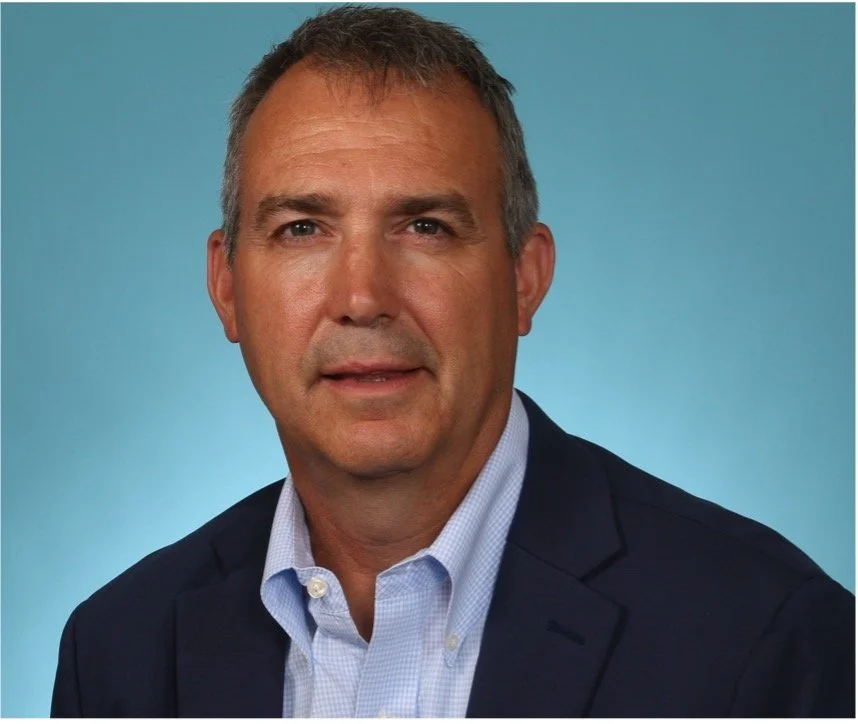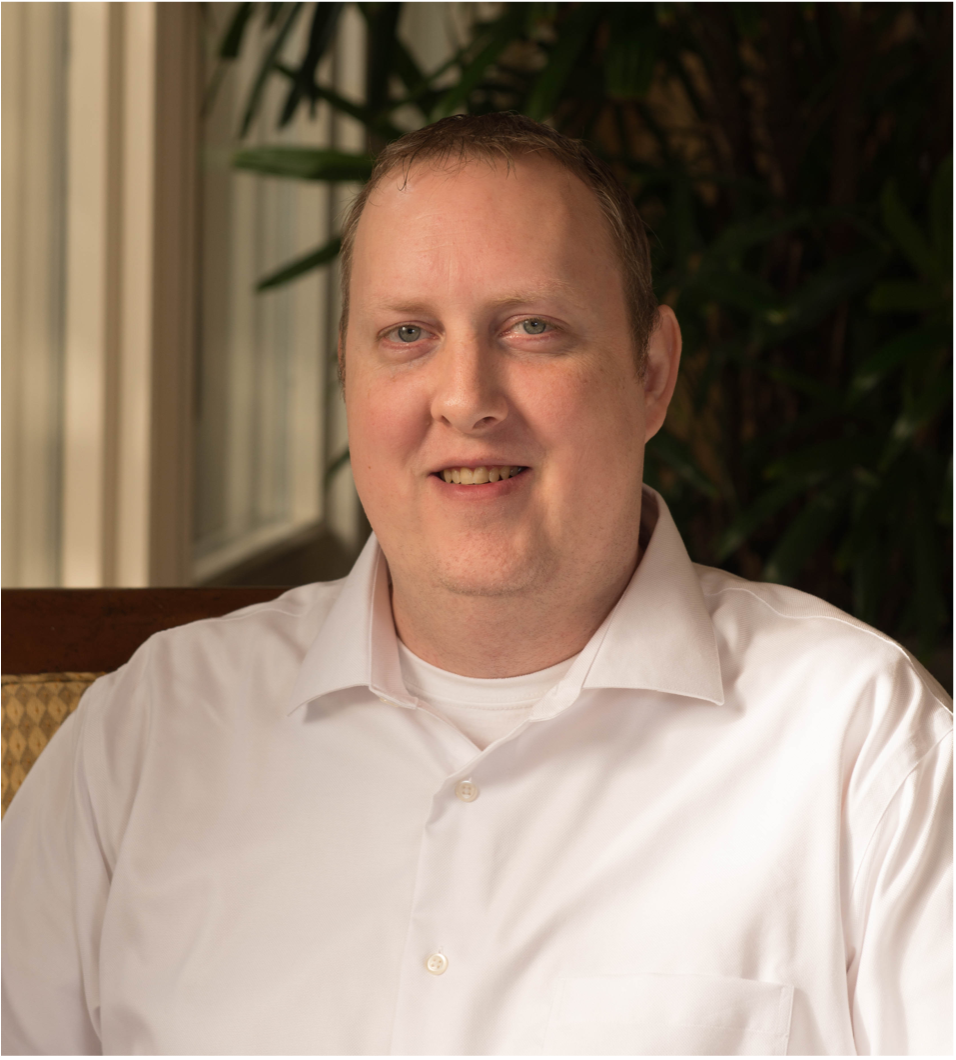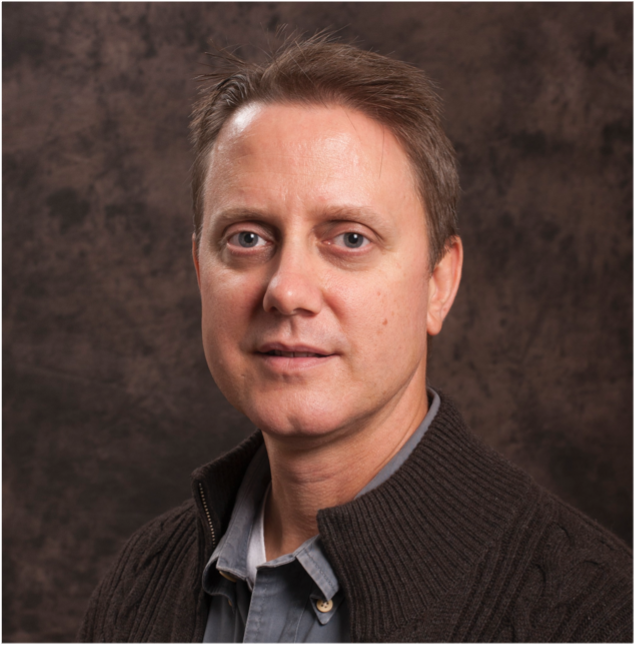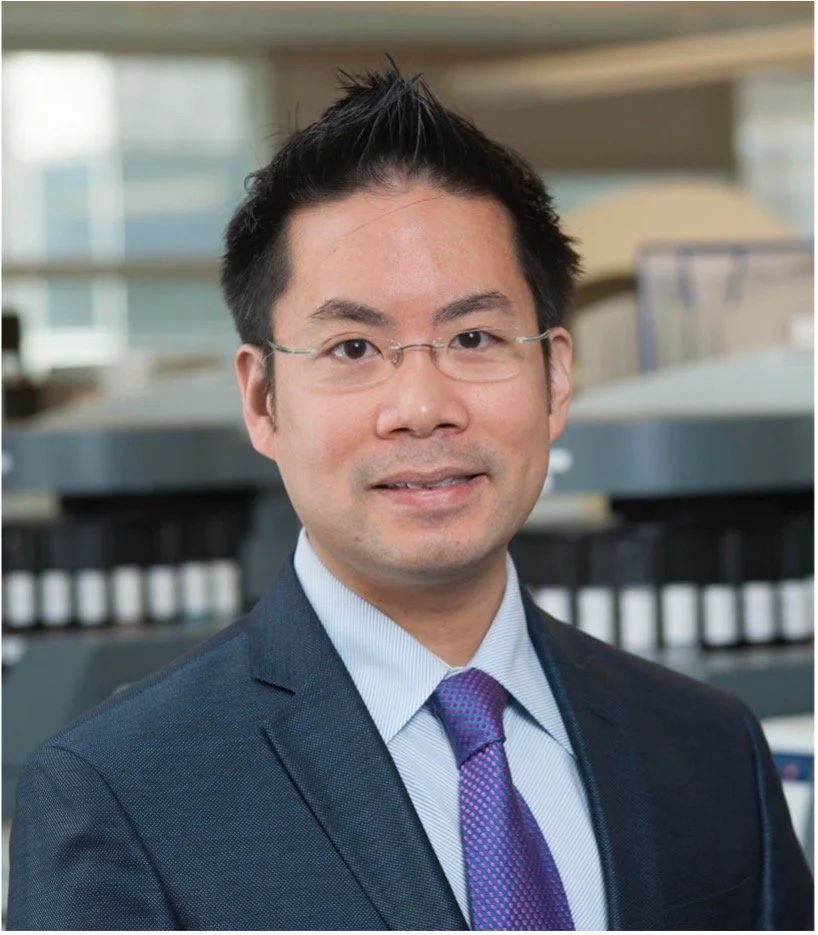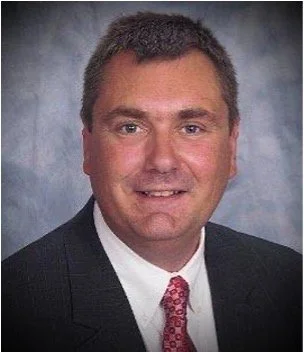Join us in-person in the Washington DC metro area on Jun 27-28, 2023 for the Pathology Innovation Collaborative Community Annual Meeting. The theme for PIcc23 is “Meet. Synergize. Impact: Unlocking the Potential of Digital Pathology and Artificial Intelligence (AI) through Regulatory Science.”
Why you should attend:
Network with domain experts with keen interest in moving regulatory science forward through in-person interactive working sessions
The most comprehensive overview from a multi-stakeholder organization on digital pathology and AI
Opportunities to share your unique point of view with the entire community
Synergize to large scale project(s) to create practically relevant regulatory science tools and templates
Topics Covered:
During PIcc23, thought-leaders, regulators and pioneers in digital pathology will network and discuss:
Advances in digital pathology and AI applications
How these advances create new incentives to tackle the next big hurdle, to broadly implement digital pathology and AI/machine learning (ML)
Impact of regulatory and legislative developments digital pathology and AI tools in diagnostics due to the end of covid pandemic public health emergency
Perspectives from patient advocates about the potential of digital pathology
Specific interactive breakout sessions on:
Remote work
Predetermined Change Control Protocols (PCCP)
Statistical performance metrics
An audience solicited topic (eg: Real World Evidence (RWE), etc.)
Key accomplishments of PIcc community and ongoing initiatives
Welcome new members to PIcc and MDIC
One of the key goals for PIcc23 is to provide broad range of stakeholders -like YOU-attending the meeting with the ability to pitch meaningful projects that align into one key large scale prospective regulatory science project that appeals to stakeholders including FDA.
Conference Venue and Hotel Accomodations
Conference Venue:
Le Méridien Arlington (link)
1121 19th Street North, Arlington, Virginia, 22209
Getting there:
Subway Station - Rosslyn Metro Station
Train Station - Union Station
Airport -
Ronald Reagan Washington National Airport (3 miles away)
Washington Dulles International Airport (25 miles away)
Baltimore/Washington International Thurgood Marshall Airport (39 miles away)
Hotel Accommodations:
Agenda
Day 1
8:00 am Check-in/Breakfast
8:30 am Welcome (MDIC and PIcc) - Andy Fish and Joe Lennerz
9:00 am Session 1: Updates from Organizations and Initiatives related to DP/AI
Digital Pathology Association (DPA) and DPA Foundation: Current scope of the work of the DPA and Foundation - Esther Abels
College of American Pathology (CAP): Pathology Innovation and Data Science - Doc deBaca
Association for Pathology Informatics (API) : Pathology Informatics – A Field or a New Practice? - Ji-Yeon Kim
American Clinical Laboratory Association (ACLA) Updates - Susan Van Meter & Adam Borden
Association of Directors of Anatomic and Surgical Pathology (ADASP) Updates - Alex Kalof
Panel Discussion for Session 1 - Moderated by Joe Sapiente
10:20 am Coffee Break + Networking
10:30 am FDA Talk 1: DHCoE Overview and Updates - Troy Tazbaz
11:00 am Q&A with Jithesh Veetil
11:30 am Session 2: From Regulatory Science to Patients
Friends of Cancer research (FOCR): Advancing Regulatory Science - Mark Stewart
Alva10, Value of diagnostics in healthcare - Hannah Mamuszka
CorePlus: The Journey to Precision Pathology - Mariano de Socarraz
NIH, What can we learn from other technologies - Mickey Williams
APPIA, pre-analytics - Joshua Greenlee
Panel Discussion - Moderated by Brittany Mckelvey
12:50 pm Lunch
1:00 pm Keynote I: A Vision for DP and AI - Thomas Fuchs (founder of Paige)
1:30 Q&A
2:00 pm Session 3: Research in the FDA: an overview - Moderated by Ed Margerrison
FDA Talk 2: Regulatory science projects in OSEL’s digital pathology program - Brandon Gallas
FDA Talk 3: DIDSR AI/ML research program and gaps - Alexej Gossmann
FDA Talk 4: Predetermined Change Control Plan - Ayobami Adebowale
Panel Discussion
3:45 pm Coffee Break + Networking
4:00 pm Session 4: Breakout session topics
4:30 pm Discussion and Open Topic Selection - moderated by Joe Lennerz
5:00 pm Adjourn
5:30 pm Networking Dinner
Remote Work
Session Leaders: Matt Leavitt, Mike Isaacs, Doc de Baca, Joe Sirintrapun
PCCP
Session Leaders: Emre Gulturk, Kevin Schap, Alexej Gossmann
Statistics
Session Leaders: Brandon Gallas, Kim Blenman, Gina Giannini
Open Topic
Session Leaders: Joe Lennerz, Jeni Caldera
Day 2
8:15 am Welcome
8:30 am Breakout Sessions
9:15 am Breakout sessions create summary slide
9:30 am Coffee Break & Networking
10:00 am Brief presentations by each breakout group
Vote
10:30 am Keynote II: MedPerf Open and Standardized Benchmarking of Medical Artificial Intelligence - Alex Karargyris
11:30 am Breakout Sessions cont’d
12:15 pm Breakout sessions create summary slide
12:30 pm Brief presentations by each breakout group
Vote to narrow down to 2 projects
1:00 pm Lunch
2:00 pm Breakout work sessions for (2) selected topics
3:00 pm Brief presentations by breakout groups
Vote to select final project
3:30 pm Discussion and next steps
4:00 pm Adjourn
Remote Work
Session Leaders: Matt Leavitt, Mike Isaacs, Doc de Baca, Joe Sirintrapun
Learn more about our speakers, presenters, and group leads
M. E. de Baca (Doc), MD, FCAP
Matthew O. Leavitt, MD
Alexej Gossmann
Ji Yeon Kim, MD, MPH
Esther Abels
Mariano de Socarraz
Susan Van Meter
Kim RM Blenman, PhD, MS
Brittany Avin McKelvey, PhD
Emre Gültürk
Jenifer Caldara
Michael Isaacs
Ayobami Adebowale
Joshua Greenlee, MBA, IASSC CBB™, HT/HTL(ASCP)cm
Gina Giannini-Gwynn
Troy Tazbaz
Brandon D. Gallas, PhD
Mark Stewart, PhD
S. Joseph Sirintrapun, M.D., FASCP, FCAP
Andrew C. Fish, JD
Joseph Sapiente
Thomas Fuchs, Dr. Sc
Kevin Schap, MScBMI
Alexandros Karargyris
Edward Margerrison, PhD
P. “Mickey” Williams, PhD
Hannah Mamuszka
Dr. de Baca, VP for Medical Affairs at Sysmex America, Inc, has directed high complexity hematopathology services, served as laboratory medical director of CAP accredited high complexity laboratories, and has been affiliated with academic teaching centers (as a community pathologist). She serves on the Board of Governors, Chairs the Council on Informatics and Pathology Innovation, and is a member of the Executive Committee and the Council on Education. In Informatics, she is most interested in structured disease reporting, healthcare data management, clinical laboratory interoperability, decision support, and SNOMED-CT. Prior activities with the CAP include SNOMED International Editorial Board, founding co-chair of the CAP Pathology Electronic Reporting Taskforce (PERT), Cancer committee, DIHIT, and the House of Delegates; she has served as CAP liaison to NAACR and to SNOMED International. Dr de Baca is a Past President of the Association for Pathology Informatics and served on CLIAC Advisory Committee. Board certified in AP/CP and hematopathology (ABP) and in Ophthalmology (Land Brandenburg/FRG), she continues to practice at Pacific Pathology Partners in Seattle, WA and is a Co-Founder of MDPath, LLC, which offers pathology consulting services.
Matthew O. Leavitt, MD spent his first two decades living in rural Southern Utah, Northern England and Romania. After medical school at Dartmouth, he completed residency and 2 subspecialty pathology fellowships at Stanford University Hospitals. Following training, he worked in Intermountain Healthcare’s urban hospitals, serving a few years as department chair, and overseeing lab diagnostics for patients referred from extremely remote locations. It was from that perspective that he first saw digital pathology’s potential to provide all people with access to higher quality care. In 2014 Dr. Leavitt stepped away from the hospital-based practice to establish Lumea Inc., a leading digital pathology platform. At Lumea he pioneered not only multiple patented lab technologies, but also a more affordable pathology service delivery model, the digital histology center (DHC). In 2020, he left Lumea to further expand the “virtual pathology” practice model within PathNet, a network of digital pathology practices providing anatomic pathology services to clinics and community hospitals in under-served communities throughout the United States. PathNet pathologists, operating out of three DHCs, now serve hundreds of clinics and several community hospitals in over 30 states.
Drawing on these unique experiences and perspectives, Dr. Leavitt is now focused on harnessing the potential of patient health data to improve care for individuals no matter where they happen to live. Serving on boards for the Open Pathology Education Network (OPEN) and Digital Diagnostics Foundation (DDx) he seeks to align interest of technology companies, and healthcare service providers in efforts to improve safe and efficient exchange of health data.
Dr. Leavitt and his wife Louise McConkie live in Michigan, but spend much of their lives trying to keep up with their children who now live all over the country.
Alexej Gossmann is a Staff Fellow at the U.S. Food and Drug Administration (FDA), CDRH/OSEL Division of Imaging, Diagnostics, and Software Reliability, where he splits his time evenly between regulatory work and academic research. His current research interest is in topics adjacent to performance evaluation of medical artificial intelligence (AI) and machine learning (ML) algorithms, with peer-reviewed publications in journals and venues such as JASA, IEEE TMI, JAMIA, SIAM JMDS, Biometrics, UAI, SPIE MI, MED-NeurIPS, etc. Since joining the FDA in 2018, Alexej has participated in the regulatory review of over 100 submissions of AI/ML-based medical devices/software. Alexej received his PhD degree in 2018 from the interdisciplinary Bioinnovation Program at Tulane University, New Orleans, LA, coming from a prior background in mathematics and statistics.
Dr. Ji Yeon Kim received her medical degree from Harvard Medical School and completed her master’s degree in public health at Harvard School of Public Health. She completed her residency in clinical pathology and fellowships in medical microbiology and pathology informatics at Massachusetts General Hospital before moving to Los Angeles. As Physician Director of Laboratory Informatics at Kaiser Permanente Southern California for the past 11 years, Dr. Kim has oversight over the information systems supporting clinical lab testing in 15 hospitals, 3 Regional Reference Labs, as well as multiple outpatient draw centers, for over 4.8 million members. She chairs several committees to facilitate standardized, evidence-based workflows and EMR/LIS changes that align with the organization’s clinical and strategic goals, and reviews new technology investments on behalf of the laboratory system. This year, Dr. Kim is the acting president of the Association for Pathology Informatics (API), a volunteer, non-profit organization dedicated to promoting the field of pathology informatics as an academic and clinical subspecialty of pathology, through education, advocacy, standards development, and research.
After having been a management team and C-suite member responsible for contribution to the overall business strategy and building up PharmaServices Esther started her own advisory company SolarisRTC in 2023.
Esther Abels has a background in business strategy, commercialization, bridging R&D, proof of concept, socio / health economics and pivotal clinical validation studies used for registration purposes in different geographies, for both pharma and biotech products. She has a wealth of regulatory, clinical and quality experience specializing in bringing products to clinical utility. She played a crucial role in getting Whole Slide Imaging devices reclassified in USA.
Esther drives efforts for reimbursement in Digital Pathology and collaborations with different Pathology Associations. In 2022 she was the president for the Digital Pathology Association (DPA) and she has chaired the DPA Regulatory and Standards Taskforce and facilitates FDA collaborations to drive regulatory and standard clarifications for interoperability and computational pathology in the field of digital pathology.
She is also a co-founder of the Alliance for Digital Pathology / Pathology Innovation Collaborative Community where she co-leads the reimbursement workgroup.
Esther holds a MSc in Biomedical Health Science from Radboud University Nijmegen.
Mariano de Socarraz is a healthcare industry leader, innovator, and entrepreneur with over 40 years of experience. Mr. de Socarraz serves as the CEO, CorePlus Servicios Clínicos y Patológicos, L.L.C., since founding the company in 1996. CorePlus is a specialized anatomic pathology and clinical laboratory company which provides services to medical practices, health centers, ambulatory surgical centers, multi-specialty group practices, and healthcare facilities. In addition, Mr. de Socarraz is President and Founder of Syndeo, a healthcare IT company dedicated to developing solutions for anatomical and clinical laboratories.
Mr. de Socarraz has been a global pioneer in the planning, development and implementation of digital pathology. He has led and funded the team at CorePlus to successfully convert the laboratory’s traditional histology practice (H&E, immunohistochemistry, special stains) to a full digital environment including remote sign-out since January 1st, 2020. In addition, he led CorePlus in becoming the first pathology organization in the Americas to operationalize the use of Artificial Intelligence (AI) in prostate cancer beginning June 1st, 2020. At present, he continues to lead the application of AI for the diagnosis of other health conditions. His contributions have been recognized by being selected to serve as a Member of the Board of Directors of the Digital Pathology Association.
Throughout his career, Mr. de Socarraz has served as an Executive in several companies, including as Vice-President, General Manger for Sonics International, a wholly owned subsidiary of Diasonics, Inc. from 1980 to 1984. He also served as Director of Business Development/Southeast for Medical Resources from 1985 to 1988, a leading provider of specialty imaging services. From 1988 to 1998, Mr. de Socarraz was the President of Imaging Healthcare, which specialized in the distribution of urological healthcare products and services throughout the Southeastern United States and Latin America.
Mr. de Socarraz holds multiple professional registries in the ARRT (American Registry of Radiologic Technologist) and RDMS (Registered Diagnostic Medical Sonographer). Mr. deSocarraz is degreed in Radiologic Technology (AS), International Marketing (BS) and has completed course work towards a Masters in Business Administration (MBA) Degree with a specialization in Health Care Administration.
ACLA is the national trade association representing leading laboratories that deliver essential diagnostic health information to patients and providers by advocating for policies that expand access to the highest quality clinical laboratory services, improve patient outcomes, and advance the next generation of personalized care. Prior to joining ACLA in 2022, Van Meter was Executive Director of AdvaMedDx, representing manufacturers of in vitro diagnostic (IVD) clinical tests. Previously, she held roles as Senior Vice President of Federal Relations at the Healthcare Association of New York State and in the Centers for Medicare & Medicaid Services’ Office of Legislation. Van Meter holds a B.A. from Villanova University and an M.A. from Boston University.
Dr Blenman is an Assistant Professor of Medicine in the Yale School of Medicine, Department of Internal Medicine, Section of Medical Oncology, and the Yale Cancer Center. Dr Blenman is also an Assistant Professor of Computer Science in the Yale School of Engineering and Applied Science, Department of Computer Science. She earned a bachelor's in chemistry, a master's in clinical chemistry, and a doctorate in immunology from the University of Florida, Gainesville, Florida. Her research at that time focused on the autoimmune disease Systemic Lupus Erythematosus. She also has a certificate in Drug Development and Regulatory Sciences from the University of California San Francisco. She had the privilege of learning and working on drug discovery and clinical development at Procter & Gamble's Pharmaceutical division as a senior scientist and as a global research director for the autoimmune diseases Inflammatory Bowel Disease and Irritable Bowel Syndrome. She re-entered academia as a traditional Postdoctoral Fellow at the City of Hope Comprehensive Cancer Center in Duarte, California. During her fellowship, she uncovered a potential use for B cells in predicting metastasis and disease-free survival in breast cancer patients and pursed her passion of computer science. Dr Blenman’s current interest is in clinical research, software development, therapeutic development, and health disparities. Her disease focus areas are cancer and autoimmunity with a special interest in the therapy-induced toxicity (treatment emergent adverse events (TEAEs)) bridge between the two disease areas.
Brittany Avin McKelvey serves as the Director of Regulatory Affairs at Friends of Cancer Research (Friends). Friends is an advocacy organization based in Washington, DC that drives collaboration among partners from every healthcare sector to power advances in science, policy, and regulation that speed life-saving treatments to patients. Brittany supports the development and implementation of the organization’s research and policy agenda. She leverages her patient advocacy and scientific background to generate scientific evidence and policies to advance progress in oncology care. She collaborates with diverse stakeholders to inform policy objectives and execute evidence-based research projects.
Prior to joining Friends, Brittany worked for the American Cancer Society Cancer Action Network (ACS CAN) as a Policy Fellow after receiving her PhD in molecular biology and genetics from Johns Hopkins University School of Medicine. As a childhood cancer survivor, Brittany is actively involved as a patient research advocate with multiple organizations.
Emre Gulturk is the Vice President of Regulatory Affairs and Quality Systems at Paige, where he is leading Paige's worldwide regulatory and compliance initiatives. Emre has over a decade experience in digital health, including leading marketing authorizations for the first digital therapeutic in the treatment of ADHD, first diagnostic AI in dentistry, and most recently the first diagnostic AI in digital pathology. Emre earned an MSc from University of Minnesota, and a Bachelor of Science degree in Materials Science from METU in Turkey.
Jeni is an innovative digital pathology professional that specializes in AI-based image analysis and implementation. She is passionate about the role that AI may play in the clinical workflow and getting these tools into the hands of the pathologist within their existing systems. Currently, Jeni is the Technical Sales Manager for the Americas at Visiopharm and also serves as their Translational Specialist, where she collaborates closely with experts in the field of digital pathology.
Mike Isaacs is the Director of Clinical informatics and Business Development at Washington University in the Department of Pathology and Immunology. He has a computer science background and over 25 years of experience in supporting Information Technology in the laboratory, which has provided him with the experience to identify the informatic needs of the department. Mike has been involved with Digital pathology for over ten years and has developed multiple digital workflows to take advantage of technology in the laboratory. For the last 4 years, he has focused on building and integrating Digital Pathology Solutions for Internal use and for our Outreach Client business at WU/BJC hospital. His primary interest is providing a strategic vision for the implementation of Digital Pathology for the BJC HealthCare system, which consists of 15 hospitals in two states. He is currently on the DPA board of Directors and sits on the foundation and program committees of the DPA
Ayobami Adebowale is a biomedical engineer working in Digital Health Policy for the Digital Health Center of Excellence at the Food and Drug Administration's Center for Devices and Radiological Health. She works on strategic policy initiatives, including developing and implementing new policy and regulatory approaches for the use of Artificial Intelligence and Machine Learning in medical devices. She is also involved in efforts to increase the use of regulatory science tool to advance health equity. Previously, Ayobami was a Lead Reviewer in the Office of Cardiovascular Devices in the Office of Product Evaluation and Quality. Prior to joining the agency, she earned her Master of Engineering in biomedical engineering from Cornell University.
Joshua Greenlee also serves on the board for APPIA (Anatomical Pathology Patient Interest Association). He has greater than 20 years of laboratory experience, primarily in anatomic pathology. He holds a Bachelor of Science in Biology, Master of Business Administration specializing in Project Management, and is dual ASCP certified as an HT/HTL(ASCP)cm. In addition to laboratory work, he spent 4 years working in the NAACLS accredited histology program at Phoenix College. He joined Sakura Finetek USA, Inc., in 2015. With his current position, as an IASSC Certified Black Belt in Lean Six Sigma, Joshua focuses on workflow and implementation of innovative automation solutions in anatomic pathology.
Gina is a Regulatory Affairs professional with a broad experience of over 15 years in the medical device and in vitro diagnostic device industries including digital health and digital pathology. Capitalizing on rigorous scientific training to analyze clinical data and published research evidence for the determination of global regulatory and clinical strategies.
Troy Tazbaz is Director of Digital Health Center of Excellence (DHCoE) at FDA. DHCoEwithin the Center for Devices and Radiological Health (CDRH) is responsible for envisioning a future of safe and effective healthcare delivery with a focus on advancing public health goals with the use of technology. Troy Tazbaz is responsible for providing leadership in technology evaluation and integration into clinical care, policy development to establish digital health guidelines, and strategic public-private institution partnerships.
Prior to joining FDA, Mr. Tazbaz was at Oracle for 11 years, holding a variety of technical and business responsibilities in building and scaling the cloud business as Senior Vice President of Industry Business Unit Strategy & Operations.
Brandon D. Gallas provides mathematical, statistical, and modeling expertise to the evaluation of medical imaging devices at the FDA. His main areas of research are image quality, computer-aided diagnosis, imaging physics, and the design, execution, and statistical analysis of reader studies. Recently, he has been investigating pathologist performance and agreement using whole slide imaging devices and the microscope. These studies are enabled by an evaluation environment that registers the digital images to the glass slides. Dr. Gallas also participates in the Pathology Innovation Collaborative Community, a regulatory science initiative to harmonize and standardize digital pathology processes to speed up innovation to patients.
Mark Stewart serves as a Vice President, Science Policy at Friends of Cancer Research (Friends). Friends is an advocacy organization based in Washington, DC that drives collaboration among partners from every healthcare sector to power advances in science, policy, and regulation that speed life-saving treatments to patients. For more than two decades, Friends has been instrumental in the creation and implementation of policies ensuring patients receive the best treatments in the fastest and safest way possible.
At Friends, Mark leads the development and implementation of the organization’s research and policy agenda as well as overseeing the conduct of research projects to inform ongoing policy discussions. Mark establishes unique partnerships to help develop innovative policy proposals and consensus-driven solutions to address challenges and accelerate cancer drug development. He regularly participates in policy discussions and meetings throughout the year to help catalyze meaningful change for oncology healthcare.
Prior to joining Friends, Mark worked at the National Academies of Sciences, Engineering, and Medicine. At the Academies, he assisted with a congressionally mandated study that resulted in the report titled Ovarian Cancers: Evolving Paradigms in Research and Care. This report identified gaps in ovarian cancer knowledge and care, and established science and policy recommendations to overcome these gaps. Mark also assisted the National Cancer Policy Forum.
Mark has had the honor to serve on several membership and working group committees, including serving as chairperson for the Associate Member Council of the American Association for Cancer Research (AACR) and member of the Drug Information Association Program Planning Committee.
Mark Stewart received his PhD in cancer biology from the University of Alabama at Birmingham.
S. Joseph "Joe" Sirintrapun, MD, is an Associate Attending, Director of Pathology Informatics, and a member lead of the Warren Alpert Center for Computational Pathology at Memorial Sloan Kettering Cancer Center (MSKCC). He is also the past 2021 president of the Association for Pathology Informatics (API).
As a Director and the 2021 ex-API President, Joe is a recognized leader and expert in digital and computational technologies. His work focuses on the "operationalization" of digital pathology, AI, and advanced diagnostic technologies. Likewise, Joe actively participates in many other national committees to enable digital and computational technologies and data initiatives to steer national strategic direction and policy.
Joe is also a clinically practicing surgical pathologist with expertise in genitourinary tumors. Thus, his perspectives in informatics, computational pathology, and clinical practice confer a nuanced understanding for regulatory approaches on emerging technologies and their integration into clinical practice.
Andrew Fish has extensive experience leading advocacy and policy organizations at the complex intersections of regulated business, health care, science, technology, law, media, and politics. He has particular expertise in medical technology matters ranging from innovation and regulation to reimbursement and health care delivery. Fish previously held multiple roles at AdvaMed, the Advanced Medical Technology Association, including Chief Strategy Officer, Executive Director of the AdvaMed Center for Digital Health, Executive Director of AdvaMedDx, and Head of Sector Initiatives. Prior to AdvaMed, Fish was Senior Vice President of Legal and Government Affairs, General Counsel, and Secretary for the Consumer Healthcare Products Association (CHPA), representing manufacturers of non-prescription medicines. Mr. Fish also led the American Cancer Society’s federal lobbying team as the Senior Director of Federal Government Relations. Earlier in his career, Fish served in the Senate-confirmed post of Assistant Secretary of Agriculture for Congressional and Intergovernmental Affairs after working as a deputy chief counsel and professional staff member for the U.S. Senate Agriculture Committee. Fish holds a BA from Yale University and a JD from Stanford Law School.
Joseph joins MDIC with over 37 years of medical device experience in quality and regulatory compliance, product registration, continuous improvement and new product development and innovation. Joseph has led Quality Operations and Compliance at Medtronic. He has held executive leadership roles in quality, regulatory, clinical affairs and professional medical education and training at Covidien, Tyco HealthCare and US Surgical. He led the Quality Begins with Me culture initiative for Covidien and the enterprise – wide QBWM role out at Medtronic.
Before joining MDIC, Joseph was the Vice President of Quality Assurance and Regulatory Affairs, Surgical, Breast, Skeletal Health, for Hologic, Inc., manufacturers of life saving and life enhancing technologies in women’s health including, Breast Heath, Skeletal, Gyn Surgical and Diagnostic Solutions. In addition to his role at Hologic, Joseph served as Industry Chair and Steering Committee Chair of MDIC’s Case for Quality collaborative community and AdvaMed Case for Quality Working Group. Joseph has been an active member of the Case for Quality program at MDIC since 2012.
Dr. Thomas J. Fuchs is the Founder and Chief Scientist at Paige. He is a pioneer in the groundbreaking field of computational pathology whose inventions led to the first FDA-approved AI-based pathology product, Paige Prostate. Dr. Fuchs was named one of the Top 100 AI Leaders in Drug Discovery and Advanced Healthcare in 2019. He is also the Dean of Artificial Intelligence and Human Health and Co-Director of the Hasso Plattner Institute for Digital Health at the Icahn School of Medicine at Mount Sinai.
Previously, he was Associate Professor for Machine Learning at Weill-Cornell University, Director of the Warren Alpert Center for Digital and Computational Pathology at Memorial Sloan Kettering Cancer Center and Research Technologist at NASA’s Jet Propulsion Laboratory. Dr. Fuchs holds a Doctor of Sciences from ETH Zurich in Machine Learning and a MS in Technical Mathematics from Graz Technical University in Austria.
Kevin Schap received his master’s degree in biomedical Informatics from the University of Chicago. He has been with the College of American Pathologists (CAP) in multiple roles since 2006, with his most recent being Senior Manager, AI and Data Standards Initiatives. Kevin acts as committee staff for CAP’s Informatics Committee, Digital and Computational Pathology Committee, and Artificial Intelligence Committee. Each committee leads a variety of projects that include education, advocacy, implementation, and standardization, as well as serving as subject matter experts for other CAP initiatives. In addition to his committee management responsibilities, he also serves as the engagement lead for the CAP’s In Vitro Diagnostic data quality assurance contract awarded through the FDA’s Broad Agency Announcement Program.
Alexandros Karargyris leads the medical working group at MLCommons. The group has a mission to provide neutral benchmarking and best practices for Medical AI in an effort to circumvent negative effects of AI. In its short life span the group has grown to already support the largest federation of brain tumor segmentation as well as to plan its prospective AI studies. Previously he worked as a research lead at IHU Strasbourg in projects related to applications in the intersection of surgery and AI. He also worked as a researcher at IBM and NIH for more than 10 years. His research interests lie in the space of medical imaging, machine learning and mobile health. He has contributed to healthcare commercial products and imaging solutions deployed in under-resourced areas. His research has been published in peer-reviewed journals and conferences.
Ed is the Director for the Office of Science and Engineering Laboratories (OSEL) at the Center for Devices and Radiological Health, US FDA. The Office is responsible for providing technical expertise and analyses in support of the regulatory processes within CDRH. In addition, the c300 scientists and engineers engage in representing the Agency on International standards organizations, provide scientific guidance for policy, and “futureproof” the Center for technologies making their way into novel medical devices.
Previously, he was President and CEO of Ortho Regenerative Technologies, a biotech startup based in Montreal, developing novel biomaterial approaches to surgical soft tissue repair. During this appointment, Ed steered the company to listing on the Canadian stock exchange, and started the regulatory process for the technology with the Center for Biologics at FDA.
He has also held senior positions at Zimmer Biomet (Vice President of Biologics), where he was primarily responsible for the cartilage repair business, has held other positions in both the pharmaceutical (Akela Pharma) and Orthopedics (Smith & Nephew) industries.
He graduated in Biochemistry from the University of Oxford and gained his PhD in Molecular Genetics from St George’s Hospital Medical School in London UK, where he studies the mechanisms of resistance to quinolone antibiotics.
The Molecular Characterization Laboratory (MoCha) was established by the National Cancer Institute (NCI), Division of Cancer Treatment and Diagnosis (DCTD), to focus on development of state-of-the-art molecular technologies for clinical research. Laboratory goals are to assist in the development and application of well-characterized and validated clinical assays to support cancer patient management and clinical research. MoCha has played a role in many clinical trials including the development and implementation of analytically validated NGS assays for selection of patients for clinical trials (e.g. NCI-MATCH, Pediatric MATCH, NCI-MPACT, iMATCH and soon MyeloMATCH). MoCha provides genomic characterization for the NCI’s Patient Derived Model Repository. Other activities include development of reference and quality control materials for use in clinical assays. MoCha is actively pursuing development and implementation of circulating tumor DNA and single cell sequencing assays.
Mickey has been active in the use of molecular technologies for drug-target discovery. During his thirteen years at Genentech, he developed novel assays to support clinical studies and discover new therapeutic targets. He was the author of the first quantitative “real-time” PCR papers and contributed to the development of this powerful technology. Prior to joining FNLCR in 2010, he was a senior research group leader at Roche Molecular Diagnostics. While at Roche, he led the research effort and managed two large multi-national clinical assay studies: The MILE Study (microarray innovations in leukemia), and a collaboration with the LLMPP (leukemia and lymphoma molecular profiling project). He also initiated 2 projects that have subsequently been approved by the FDA as IVD tests. He has published over 50 manuscripts and is an inventor on over 30 issued U.S. Patents. Mickey received his Ph.D. from the University of Virginia.
Hannah Mamuszka is Founder and Chief Executive Officer at Alva10, which she founded in 2015 to spur change in healthcare to allow more patients better access to diagnostic technology. Hannah’s career has spanned the laboratory and business sides of healthcare in both the pharma and diagnostics industries. Prior to Alva10, Hannah was VP of Exosome Diagnostics (acquired by BioTechne), where she led some of the earliest deals in the liquid biopsy space. Earlier in her career, she was Global Director of Pharmaceuticals Services for Oncotech, and then by acquisition, Exiqon (acquired by QIAGEN), where she built the Pharmaceutical Services and Companion Diagnostics business in the US, Europe, and ROW. Prior to her time in diagnostics, she worked on the IND submission for VelcadeTM at Millennium Pharmaceuticals (acquired by Takeda). She started her laboratory career at the National Institutes of Health, holding laboratory positions in both the National Cancer Institute (NCI) and the National Institute of Allergy and Infectious Disease (NIAID). Hannah is a frequent speaker and writer on how to drive change in healthcare, and is on the editorial board for the Journal of Precision Medicine, where she also writes a regular column on the challenges of implementing change in medicine. Hannah serves on the Board of Directors for Bionano Genomics (BNGO) and the University of North Carolina’s Carolina Health Informatics Program (CHIP).
Remote Work
Session Leaders: Matt Leavitt, Mike Isaacs, Doc de Baca, Joe Sirintrapun
PCCP
Session Leaders: Emre Gulturk, Kevin Schap, Alexej Gossmann
Statistics
Session Leaders: Brandon Gallas, Kim Blenman, Gina Giannini
PCCP
Session Leaders: Emre Gulturk, Kevin Schap, Alexej Gossmann
Statistics
Session Leaders: Brandon Gallas, Kim Blenman, Gina Giannini
Open Topic
Session Leaders: Joe Lennerz, Jeni Caldera
Open Topic
Session Leaders: Joe Lennerz, Jeni Caldera


